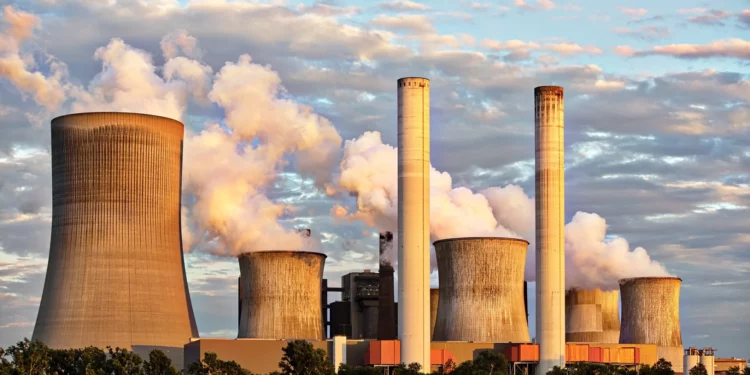Wright and Saudi Arabia’s Energy Minister Prince Abdulaziz bin Salman met on Sunday and discussed a plan to develop a Saudi civil nuclear programme, which Wright described as a ‘123 nuclear agreement.’
Nuclear technology is long past the point of national security alone. The economic advantages of adopting nuclear technology have made it a coveted attraction for oil-deficient and oil-rich countries alike, particularly in light of the environmental burden natural gas and fossil fuels are proven to be.
To that effect, long-term allies, Saudi Arabia and the US are to sign a preliminary agreement on energy cooperation and civilian nuclear technology, confirmed Chris Wright, US Energy Secretary. With details on nuclear cooperation between Riyadh and Washington to be disclosed later in the year, he added that the two countries will focus on building a commercial nuclear power industry in Saudi Arabia.
Wright and Saudi Energy Minister Prince Abdulaziz bin Salman met on Sunday and discussed a plan to develop a Saudi civil nuclear programme, which Wright described as a ‘123 nuclear agreement.’ The US expects long-term cooperation from the Kingdom in the development of its civil nuclear industry and has extended complete support to Riyadh in terms of technologies and partnerships to expand cooperation across major energy sectors.
The 123 Agreement refers to Section 123 of the 1954 US Atomic Energy Act which permits the US government and companies to negotiate agreements while engaging in civil nuclear cooperation with other countries. These pacts which are subject to Congressional reviews have non-proliferation clauses which these countries must follow, to prevent them from developing nuclear weapons and transferring sensitive materials to other parties.
Wright praised the Kingdom’s solar resources and potential for technological advancements and commended its approach to efficient energy development, saying it applied to all energy sources. While there was only warmth between both representatives, Wright has clarified that Saudi Arabia has yet to agree to the 123 Act requirements.
The Kingdom’s Crown Prince, Mohammed bin Salman has never hesitated to admit that if Iran were to develop a nuclear weapon, Saudi would waste no time in doing the same. This attitude has been a point of contention between a few US lawmakers and arms control activists.
Along with Saudi’s noncommittal nature to non-proliferation, its unwillingness to sign a deal to curb enriching uranium or reprocessing spent fuel, both of which could facilitate the development of nuclear weapons have been the root cause of Washington’s weariness to escalate nuclear ties with the leader of the Arab world.
However, despite these reservations regarding the deal, Wright maintained that Saudi Arabia will be one of the leading investors in the US, which is bound to benefit both countries. Along with energy security, the two countries have also mapped out critical minerals mining and processing, industrial development, and climate change as areas for collaboration.
No bilateral discussions can be complete without discussing the Trump tariffs, and to that end, Wright defended the President’s protectionist policies by describing it as ‘one component of a larger agenda.’ He explained that these tariffs were to facilitate reciprocal trade, and pointed out that energy-intensive industries, which were dominated by US technologies have been outsourced for the past twenty years.
As oil prices are fluctuating erratically in light of the escalating trade war, US officials are convinced that lower average energy prices will be recorded under the Trump administration. He reiterated that the Republican President has promised to grow energy production and effectively drive down prices.
Saudi Arabia has a growing interest in expanding energy production, particularly through commercial nuclear energy. This is part of the Kingdom’s wider strategy to diversify energy production. The development of nuclear capabilities is not much of a challenge for the uranium-rich country, and technology is the only thing for which they need to rely on external powers.
These potential Saudi-US collaborative efforts, coupled with Washington’s changing energy policies are bound to bring much economic growth, not just to both countries, but also to the global economy.

















